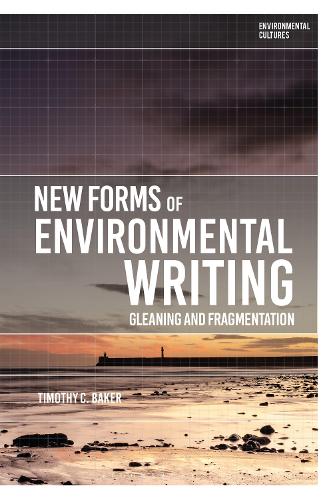
New Forms of Environmental Writing: Gleaning and Fragmentation
(Paperback)
Available Formats
Publishing Details
New Forms of Environmental Writing: Gleaning and Fragmentation
By (Author) Timothy C. Baker
Bloomsbury Publishing PLC
Bloomsbury Academic
28th December 2023
United Kingdom
Classifications
Professional and Scholarly
Non Fiction
Literary studies: c 1900 to c 2000
Literary studies: fiction, novelists and prose writers
809.933553
Physical Properties
Paperback
256
Width 156mm, Height 234mm
Description
Surveying a wide range of contemporary poetry, fiction, and memoir by women writers, this book explores our most pressing environmental concerns and shows how these texts find innovative new ways to respond to our environmental crisis. Arguing for the centrality of individual encounter and fragmentary form in 21st-century literature, as well as themes of attention, care, and loss, Baker highlights the ways that fragmentary texts can be seen as a mode of resistance. These texts provide new ways to consider the role of individual agency and enmeshment in a more-than-human world. The author proposes a new model of 'gleaning' to encompass ideas of collection, assemblage, and relinquishment and draws on theoretical perspectives such as ecofeminism, new materialism and posthumanism. Examining works by writers including Sara Baume, Ali Smith, Elizabeth-Jane Burnett, Bhanu Kapil and Kathleen Jamie, Baker provides important new insights into understanding our planetary predicament.
Author Bio
Timothy C. Baker is a Senior Lecturer in Scottish and Contemporary Literature at the University of Aberdeen, UK. His third monograph, Writing Animals: Language, Suffering, and Animality in Twenty-First-Century Literature, also explores ideas of environment and the Anthropocene in contemporary literature; a forthcoming book chapter on The Gender Politics of Trees explores ecofeminist lineages.
